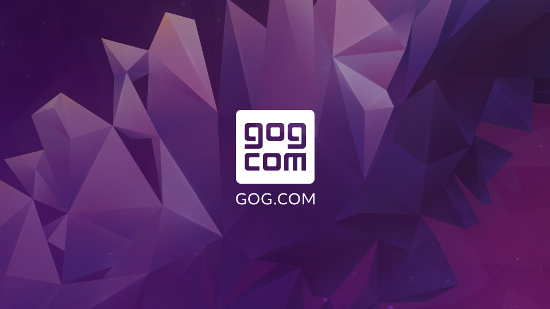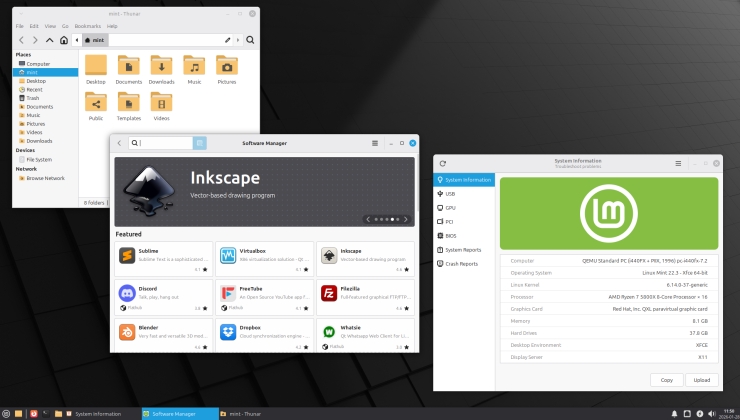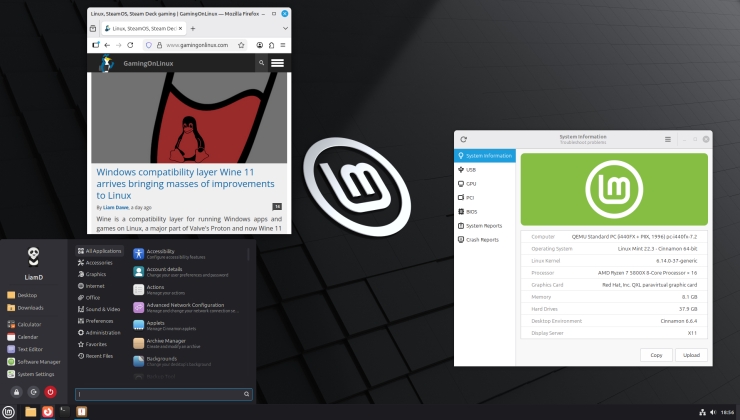Stop Killing Games has seen a massive surge recently and it has hit some vital milestones.
What is it? A consumer movement, pushed initially by YouTuber Accursed Farms, that aims to stop game developers and publishers just removing video games they've sold. A big part of it comes from what Ubisoft did with The Crew, shutting it down completely so no one could access it, even if you had only purchased it a few months prior.
It has a noble cause but has struggled a bit until very recently, where the campaign has just absolutely exploded.
In the UK, the newer petition has flown past the 100K signatures (126,066 at time of writing) needed for it to be considered for a debate in Parliament. That doesn't mean it will happen, just that it now needs to be considered by the UK government to potentially have it mentioned. A good step though, with signatures still flowing in until July 14th, showing there's demand for change.
On the EU side, things are also going well there now too. Against the needed 1 million signatures, it's now hit 977,864 (at time of writing). According to the official Accursed Farms X account, they've had reports of "non-citizens spoofing signatures on the EU initiative" so it may be a little inflated.
I do miss the days where you could easily host an online game with developers just providing server builds. We do still have a fair amount of games that do that, but along with the rise of micro-transactions, some bigger publishers really want that complete control over it. Still, for a game that's no longer being sold, it would make sense then to release it.
Even better - open source. Yeah, I had to get that in here. More developers and publishers just should open source their much older games to let them live on. It's such a waste of all the time and effort put into it and such a loss for gaming history each time these games just vanish because a publisher moves onto something else.
One of the requirements is that al least seven countries reach a tresshold. And I can't see that anymore.
And yes, we reached the thresholds in almost all countries! :-)
Last edited by pb on 4 Jul 2025 at 11:14 am UTC
It should be illegal that if you buy something, that it requires the cloud to be functional.If this initiative goes through and actually gets some results then i really hope it's just a first step towards gaining back the ownership on things we buy, not just games.
I can accept that author and/or publisher own the IP rights. If this initiative leads to regulating the publishing industry so that it can no longer treat a digital license as if it is merely a one-time subscription, then I feel it will have accomplished something good.
I use the eBook as an example, but really, this should absolutely apply to anything with a digital license -- games, books, music, videos/movies, etc.
I don't live in the EU but, like replaceable batteries and the "right to repair", this has my full support.
I use the eBook as an example, but really, this should absolutely apply to anything with a digital license -- games, books, music, videos/movies, etc.The underlying issue here is that the free market and competition as USA shaped it promotes vertical integration. So eventually a single corporation gets to control the whole supply chain, or at least the profitable layers. In digital but also outside. You buy a book on Amazon, you can only access that IP you bought there (the license is amazon license). That is what competition laws push for.
To make a system where you "own" some IP access regardless of who gives you this access, you need to make a legislation that forbids vertical integration. So if you buy "Lord Of The Rings" on Amazon, you own it also on Bookshop or Kobo. Or a physical bookshop too (in that case you would pay the print costs not the intellectual property that you already own). License market separated from license access market. The owenrship of the book is one market, how you consume the book another market. But for this to work it requires to separate ownership of the license from the servive of providing you the content (which now would not be free but become a monthly fee service I guess). But again, who will store the ownership of the license for you? The state? Another service? Well, if I were the lawmaker, I would say that is the quintessential use case for blockchains, which could very well be state regulated and then p2p operated. But ofc this is the only use case for blockchains that nobody care about since it solves actual issues and it's not speculative in nature.
Anyway, even if today it would be very doable (and very welcomed since it would mean the end of exclusives as a business practice in gaming as in video, and the possibility to get your IP wherever you want), it would require a massive education and mobilization campaign of the consumers in EU and possibly it would mean that EU and USA part ways all together since it's completely incompatible with how people think in other side of the Atlantic. It will never happen.
I hadn't quite thought of it in that way. Universal access seems somewhat extreme.
Looking back at the physical book model, a new novel was often published first in a hardcover edition and then later, in a paperback edition (often by 2 distinct publishers). If I buy the hardcover edition, I do not expect to get the paperback edition as well. Two separate containers.
I see eBooks the same way. If I purchase the Amazon edition, I do not expect to have access to the Kobo edition. Two separate containers. If I want both, I have to buy both.
Tracking would only be necessary by the online reseller or, possibly, the publisher (if you want a safeguard in case the reseller shuts down).
The same should -- and does -- apply games. The GOG, Epic, Steam and "publisher" editions (or licenses) are separate containers. If I buy the Steam edition, I do not get a copy of the GOG edition. (Although, for a short while, CDP, as the publisher, did choose to offer this on some of their products -- probably to entice some customers over to GOG.)
I think universal licensing such as you were describing would be too complicated to manage. I wouldn't want that forced on publishers. I would just like to see the publishers being expected to recognize the ownership rights of their customers (i.e., of the license and it's accompanying distribution container).
Last edited by Caldathras on 7 Jul 2025 at 5:22 pm UTC
It's surely overly complicated for physical goods. Once you move to digital it's already starting to make more sense. You buy Risk and Morty season 9 4k as an IP, it goes on the Blockchain, and now you can get it with whatever streaming service you want (for monthly fee ofc) or order a blue disk from a seller (for a price ofc). I guess you're also legally entitled to you own copy on disk (which is not backup anymore, you own it in all possible medium present or future).
Before Blockchain that would have been nuts. Now it's in the realm of possible. But, as I said, it goes against the implicit rules of economy we have that push for vertical integration and pseudo monopolies. Corporations would complain that it would cost them to much and prices would rise. Though if we really think about it, if Netflix, Disney+, Amazon Video and the likes all had the same catalogue and had to compete on prices and quality of service alone... would it really be bad for consumers in the long run?
I don't make the VG example by choice since ofc if Stream, EGS and GOG has the same catalogue and had to compete on the prices and quality of service alone we know how little it would actually change.
Because if they destroy the existing game it won't compete with any games they release in the future. Just look at how Rockstar removed Grand Theft Auto 3, GTA Vice City, and GTA San Andreas from Steam when it came time to release the Defective Editions.That's not even remotely true, just because it's not sold anymore, doesn't mean it's destroyed. It's related to license too, it makes no sense for them to pay for music licenses on multiple editions of the game, so they just sell one edition.
SKG is about stopping disabling games by turning off the server. This happens because the game has not enough players to run the server, not because they have better game to offer. The Crew (2014) lost most of it's players already in 2018 when The Crew 2 came out. The Crew stopped selling and was shut down when The Crew Motorsport (2023) came out.
first you buy the content IP, it goes on Blockchain that you own that book content, and then you can ask whoever you want to print it whoever you want (for the price they ask to do it ofc, you own the IP not the physical media yet).Had to think on this a bit. The only problem that I have with your idea is that it adds another middleman with their hands out for our money. Knowing corporations, it would also be an excuse to increase the overall price to the consumer.
Last edited by Caldathras on 11 Jul 2025 at 4:41 pm UTC








 How to setup OpenMW for modern Morrowind on Linux / SteamOS and Steam Deck
How to setup OpenMW for modern Morrowind on Linux / SteamOS and Steam Deck How to install Hollow Knight: Silksong mods on Linux, SteamOS and Steam Deck
How to install Hollow Knight: Silksong mods on Linux, SteamOS and Steam Deck